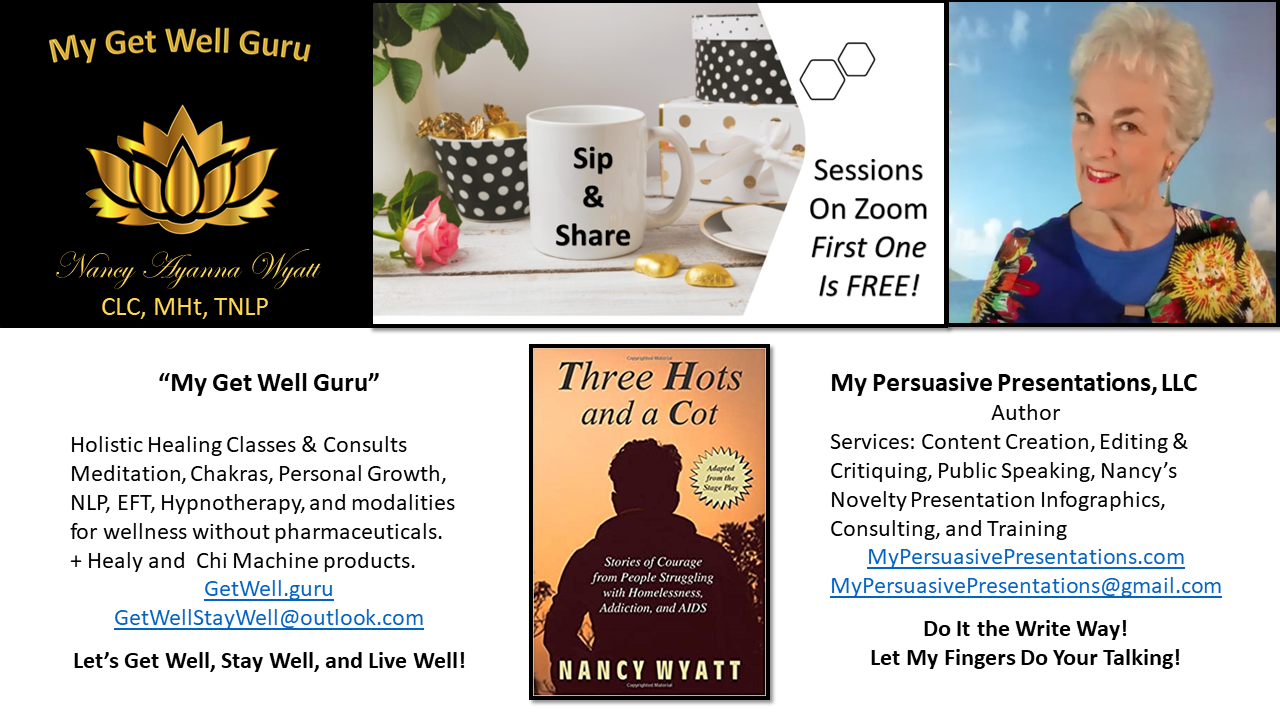How Can You Go From Grief to Relief?
Adapt, Reframe, Plan – Then Find and Feel Relief
To go from grief to relief, adaptation clearly is critical to our success. The New Year is upon us, bringing continued threats of an ongoing pandemic, inflation, losing or changing employment, and even the potential of a world war as Russia threatens further invasion of Ukraine. That’s the global view. In addition, most of us have personal challenges that may include the death of a loved one.
What is a person to do to stay sane and productive? How can one acquire or maintain the good mental health that is so important for physical health? Let’s get personal.
Going from Grief to Relief May Involve Reframing
It can start with reframing your outlook or understanding of things that have happened to you, as you navigate forward. We’ll offer an extreme example and then an all-too-common life challenge. Finally, we’ll talk about the aftermath of the death of a loved one (human or animal) for whom you may have been Care Giver.
Adaptation is Personal
Louise Hay asks us to consider the possibility that nothing that has happened COULD HAVE BEEN or SHOULD HAVE BEEN DIFFERENT.
If that were the case for you, what are the lessons, benefits, or knowledge that you have gained from the person, incident, or circumstances?

The Extreme and The More Typical
Think of the extreme cases in which people have lost legs through accidents or warfare. Some of those people emerged from their shock and depression to become key players in the advancement of research on prosthetic limbs. A few have mastered their trauma and debilitation to become Olympics athletes. None of this would have happened without the “bad thing” – loss of their limbs – having occurred.
Happily, most of us don’t have to undergo that level of drama, but we do suffer from the loss of loved ones, employment, conflicts in relationships, and other commonalities.
Finding the Positive – An Adaptive Reframing View
EXAMPLE: Child of an Abusive Parent
Having an abusive parent may, in fact, have helped a person
- become independent and self-sufficient at an early age
- be aware of and more compassionate toward others in similar situations
- choose a rewarding medical, counseling, or research career designed to help others overcome abuse.
While it is easiest to define oneself as a Victim and to continue relieving the pain of abuse, it is healthier to remember the lessons learned (e.g., don’t behave as the abuser did to your own children), and to see what other positive personal attributes or outcomes you created for yourself as an outgrowth of your childhood experiences.
EXAMPLE: Pain to Relief
Upon Death of a Loved One
Experiencing the death of a loved one (human or animal) for whom one has been a caretaker, not only brings great pain, but it also can
- bring a sense of some relief, as the loved one no longer suffers on earth.
- allow one to move into new realms of experience and focus on meeting their own needs while pursuing their interests.
That Guilt Thing

I Judge Myself Guilty Of Feeling Something Wrong
Note: people often feel a sense of guilt if they admit (even to themselves) to feeling some relief after the death of a loved one. Yet, feeling relief from the burden of having cared for another is natural. That is especially true when you have attended to that person- to the exclusion of other people and things that need attention – including yourself.
You don’t even have to have been a Care Giver. You may simply have had a very toxic relationship with someone you’re “supposed to love” because of familial bonds, for instance. Now, you feel relieved not to have to struggle with that relationship on earth any longer.
Feeling relief that your loved one is no longer suffering also is natural and positive. It enables you to change focus in constructive ways. It is part of your healing process.
High levels of stress and tension weigh on a person and affect health negatively. When you are able to release some of that pressure, it is a Good Thing.
It does NOT indicate you didn’t love the other person or pet.
- To make a lousy analogy, I may LOVE my home, but there is a burden in having to pay a huge debt in a mortgage. When that burden is no longer part of daily, monthly, yearly pressure, of course, there is a great relief.
- If you were to carry a boulder on your back for any length of time, you would feel great relief at setting it down.
Don’t beat yourself up. Relief is a natural part of the healing process. If you don’t believe me, check this out.
From Grief to Relief ~
Scientific Studies on Care Givers’ Feelings of Relief Upon Death of Care Recipients
Drs. Stahl and Schulz conducted studies on the feelings of relief by CareGivers (CGs) who had attended to people with forms of dementia. Their findings are listed in PubMed – the website of the National Center for Biotechnology Information – National Institutes of Health. This is their conclusion.
Conclusion: We show prospectively that the caregiving experience impacts feelings of relief, and that feeling relieved facilitates post bereavement adjustment by lessening symptoms of complicated grief.
Similarly, another study, published on PubMed, found that people who did Advance Care Planning (ACP) were better able to cope with death and that CareGivers (CGs) who participated in this process fared better in their own recovery after the deaths of the Care Recipients (CRs).
Conclusions: We show prospectively that preparedness for death facilitates post-bereavement adjustment and identify factors associated with preparedness. ACP can be an effective means for preparing informal CGs for the death of their CRs.
So, What About You? How Can You Prepare to Make Going From Grief to Relief Better Without Feeling Guilt?
As a practical matter, it seems to me that the best preparation for coping with the death of loved ones is to
- do whatever is possible to help them get better or get through it and know that you did that. This helps eliminate feelings of guilt later.
- rely not on hope but face the realities of the situation as it evolves and act accordingly. This means (when possible) to help with Advanced Care decisions and documents.
- It also means knowing who is responsible for decisions and arrangements relating to the death and its aftermath. If YOU are the one responsible, it helps to learn and make decisions plus associated arrangements well in advance of the anticipated death.
Death of Pets As An Example
- Circumstantially (without advance intent), I have rescued animals periodically for decades. My last four cats became ill and died, one after another, during this pandemic. It was devastating as we had been together for many years, and they were my only live-in companions. I had to watch them suffer, worsen, and then take them for euthanasia under traumatic circumstances. Now, I have to deal with their absence.
- To facilitate their comfort, the vet’s efficiency, and my own emotional complications, I knew I had to figure out whether to
- artificially prolong life
- approve euthanasia
- have the animal cremated, buried, or to bring the body home
- pay to have the animal cremated alone, so I could have the ashes
- have the animal cremated along with others and not have ashes as a remembrance.
I also had to determine
- What are the transportation arrangements and COVID protocols?
- Will the vet be allowed to keep the pet carrier to donate to another person?
- How will I pay for this?
- …at the location, how with the physical transfer of the pet to the vet and the financial transaction take place when pet owners are not allowed to enter the facility because of COVID concerns?
You will find things go faster and more smoothly if you already know the answers to these kinds of questions before you are flooded with tears and in an emergency situation with a distressed pet or person.
Practicing What I Preach About
Going from Grief to Relief
I still feel heartbroken many times a day, because – wherever I look – there used to be one or all of my animals – greeting me in the morning, following me everywhere, chasing each other, or “helping me” with yard work. But, to get my brain to quit focusing solely on grief, I remind myself:
NO MORE
- cleaning up nasty smelling litter boxes
- vet bills
- inability to travel for lack of someone to care for the animals
In other words, without them, I have far more freedom, fewer financial hits, and so forth. It does not make up for the losses, but it helps me gain a more balanced perspective.
What About Humans?
Getting back to the topic of humans, the research I cited and other sources confirm that realistic preparation is hugely beneficial.
Ideally, you will think and talk about these things with the relevant people BEFORE death becomes a fulfilled eventuality. That implies you will help others, where appropriate, and help YOURSELF by creating health and beneficiary directives while you are still healthy and have good mental capacity.
- Advance Care Planning – includes whether you want a DNR (Do Not Resuscitate) order and under what circumstances you want it enforced
- An Executor of Your Estate (This is not just for the wealthy. To prevent a court’s making decisions about whatever you own and whatever indebtedness you may have, you need to name an Executor – with their permission. If no one agrees or is able, Probate Courts will take over the processes.)
- A will – to clearly state to whom you want your assets, possessions, and pets to go upon your death. It is good to ask whether those potential recipients want to or are willing to receive these things, particularly if they involve caretaking, such as with property, children, or pets, and particularly if another party might contest those decisions.
- Descriptions of the kind of post-death things you want to have happen…for example, to have or not have a specific kind of funeral, to be cremated, to be an organ donor, to donate your body to science, etc. Those kinds of things need to be “on the record,” such as on your driver’s license before you pass into the next realm of existence.
All of this is food for thought and will help you on the road to discovering what legal, medical, counseling, and other kinds of assistance you may need, while letting you know it is PERFECTLY OKAY to feel better when it’s over.
Sometimes, You Just Want to Talk
If you want to talk about adaptation techniques, reframing, and/or releasing stress as you face life challenges, feel free to contact me for a Sip & Share Session on Zoom. I have certifications in several techniques and as a Life Coach and Spiritual Counselor – PLUS – the first one is free. 

Just email me at MyGetWellGuru@ gmail.com and put “Sip & Share Grief to Relief” in the subject line, so your message won’t be overlooked among the hundreds I get.
I wish you and all of us not just good luck, but good practices and good health for 2022. Let’s prove ourselves up to the challenges in loving goodwill and actions.
SELF CARE IS THE NEW HEALTH CARE
Let’s Get Well, Stay Well, and Live Well Together!
